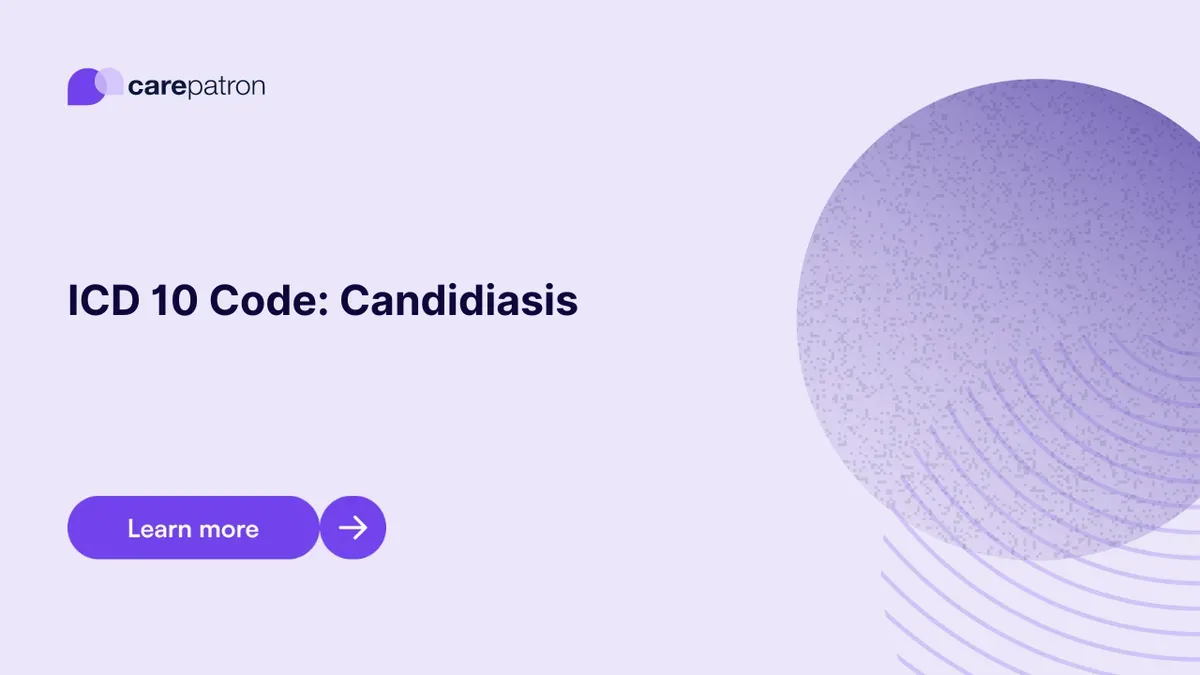
Candidiasis ICD-10-CM Codes
Explore the 2023 ICD codes for Candidiasis. Understand this common fungal infection's codes, billability, and clinical relevance.
Use Code
Commonly asked questions
Candidiasis is caused by an overgrowth of the Candida species of yeast, which is naturally present in the body but can cause infection when it multiplies uncontrollably.
Treatment for candidiasis typically involves antifungal medications, which can be topical or oral, depending on the infection's location.
Yes, candidiasis can recur, especially in individuals with weakened immune systems or those who frequently take antibiotics.
EHR and practice management software
Get started for free
*No credit card required
Free
$0/usd
Unlimited clients
Telehealth
1GB of storage
Client portal text
Automated billing and online payments
